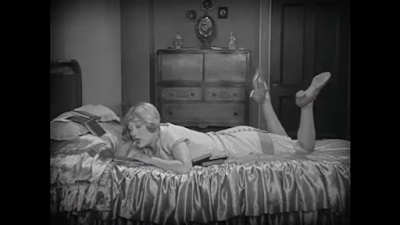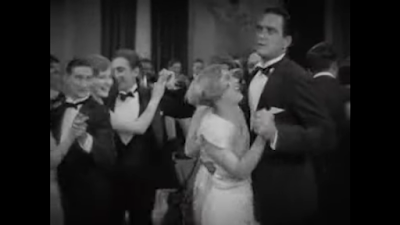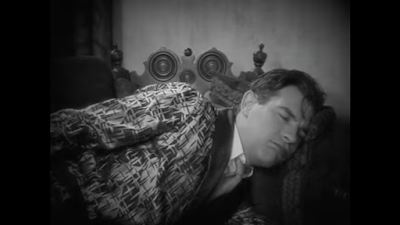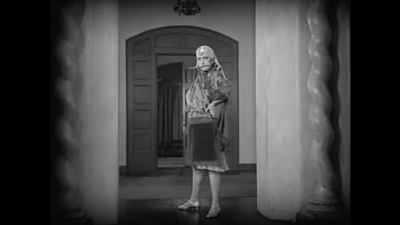What better for a lazy day after Christmas than to watch my favorite player Cary Grant in the adorable film My Favorite Wife.
Grant plays Nick, a widow ready to remarry to Bianca, played by Gail Patrick. The two hit the courthouse to marry but Nick realizes he has to clear up some business. Wife number one was Ellen (Irene Dunne) who died seven years back in a shipwreck leaving Nick and twin babies to fend for themselves. Ready to move one, he needs to dissolved his first marriage by having her declared officially dead before he can get hitched again.
Just as the new couple starts their honeymoon, Ellen returns. She tells her mother-in-law that she was stranded on a deserted island and was rescued. She is ready to see her family, but learns of her hubby's new marriage. They are even staying in the same hotel as they once did! Ellen goes to find Nick and they have a brief encounter. Nick finally sees his old bride - he thinks - and before he can find out for sure, Ellen plays a prank by sending the newly weds champagne before he can get downstairs to understand what is happening.
While Nick tries to rationalize what he just saw, Bianca is ready to get this vacation started. Nick is confused. He loves his wife but thought she was dead, like, really dead, but he also has a new bride. He gets Ellen her own hotel room so they can talk.
What the hell, Ellen?!
Nick is going to tell Bianca but he chickens out. He avoids her and calls her from the payphone in the lobby pretending to be on a plane. She obviously doesn't buy it.
Ellen goes to their home and tries to build a relationship with the children who don't know yet they she's their mother. When Nick returns home Ellen finds our he has not yet told Bianca the truth about who she is. Ellen is angry, but to be civilized, she pretends to be an old southern friend.
Nick hears during their conversation that Ellen was not alone on the island. His jealousy soars. He gets mad at Ellen as she says, "Well Nicky, it wasn't like it was arranged." Nick wants to spy on this mystery man for he is also staying at the same hotel. To his dismay Nick discovers the man his wife spent the last seven years with in seclusion isn't a toad but a heartthrob. He watches in astonishment as his wife's island mate Stephen (played by Randolph Scott) does some fancy ring work as he dives in the hotel pool.
Ellen knows Nick will be upset learning that she was alone with such an attractive man, so she gets an "unattractive" man to act as Stephen, played by character actor Chester Clute, so Nick will get off her back. She has no idea he knows the truth.
Nick isn't buying it and takes Ellen back to the pool so she can run into Stephen.
Stephen learns that Nick has a new bride and tells Nick that he would like to marry Ellen. Some bickering occurs and Ellen takes a stand, all before falling into the pool, fur muff and all. Resting in her hotel room until her clothes are dry, Ellen asks Nick to get her more clothes. He isn't about to let her and Stephen be alone any longer and makes him tag along.
Back at the house, Nick's current wife is convinced her man has gone mad and hires a doctor. Nick tries to convince them what is going on but they think he is crazy, that is until he gets arrested for bigamy! The four of them end up in the courtroom.
Stephen wants Ellen, Bianca wants Nick, and the two actually married ones aren't sure what to do.
Finally the children learn their mother's identity and they all head for the mountains to think things over. The rest of the film is funny and heartwarming as the family tries to move forward despite their current situations.
Cary also dresses up as a playful Santa.
Irene and Cary were a great match. My Favorite Wife started out as a sequel to their first film
The Awful Truth from 1937. While The Awful Truth came together smoothly, My Favorite Wife had issues. The writers couldn't figure out an original story and they couldn't think of a third act. The Breen office found the idea of bigamy and newlyweds waiting to consummate their relationship while one person also wanting someone else a problem. The film did prove to be a success and with Grant now of such high fame, he also made two and a half percent of the film's gross earnings on top of his $50,000 salary. Irene and Cary would go on to play husband and wife one more time in 1941's
Penny Serenade.










































.jpeg)




































